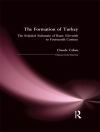Robert Ferrell Book Prize Honorable Mention 2021, Society for Historians of American Foreign Relations
Book Award for Outstanding Achievement in History Honorable Mention 2022, Association for Asian American Studies
After the US war in Vietnam, close to 800, 000 Vietnamese left the country by boat, survived, and sought refuge throughout Southeast Asia and the Pacific. This is the story of what happened in the camps. In Camps raises key questions that remain all too relevant today: Who is a refugee? Who determines this status? And how does it change over time?
From Guam to Malaysia and the Philippines to Hong Kong, In Camps is the first major work on Vietnamese refugee policy to pay close attention to host territories and to explore Vietnamese activism in the camps and the diaspora. This book explains how Vietnamese were transformed from de facto refugees to individual asylum seekers to repatriates. Ambitiously covering people on the ground—local governments, teachers, and corrections officers—as well as powerful players such as the UN High Commissioner for Refugees and the US government, Jana Lipman shows that the local politics of first asylum sites often drove international refugee policy. Unsettling most accounts of Southeast Asian migration to the US, In Camps instead emphasizes the contingencies inherent in refugee policy and experiences.
قائمة المحتويات
Introduction
1 • ‘Give Us a Ship’: The Vietnamese Repatriate Movement on Guam, 1975
2 • To ‘Shoot’ or to ‘Shoo’: Vietnamese in Malaysia, 1975–1979
3 • A Model Camp
4 • Hong Kong: Deterrence, Detention, and Repatriation, 1980–1989
5 • ‘Protest against Forced Repatriation!’: Humanitarianism and Human Rights in Hong Kong, 1989–1997
6 • Palawan and Diasporic Imaginaries, 1996–2005
Epilogue
Acknowledgments
Notes
Selected Bibliography
Index
عن المؤلف
Jana K. Lipman is Associate Professor of History at Tulane University. She is author of Guantánamo: A Working-Class History between Empire and Revolution and the cotranslator of Ship of Fate: Memoir of a Vietnamese Repatriate.












